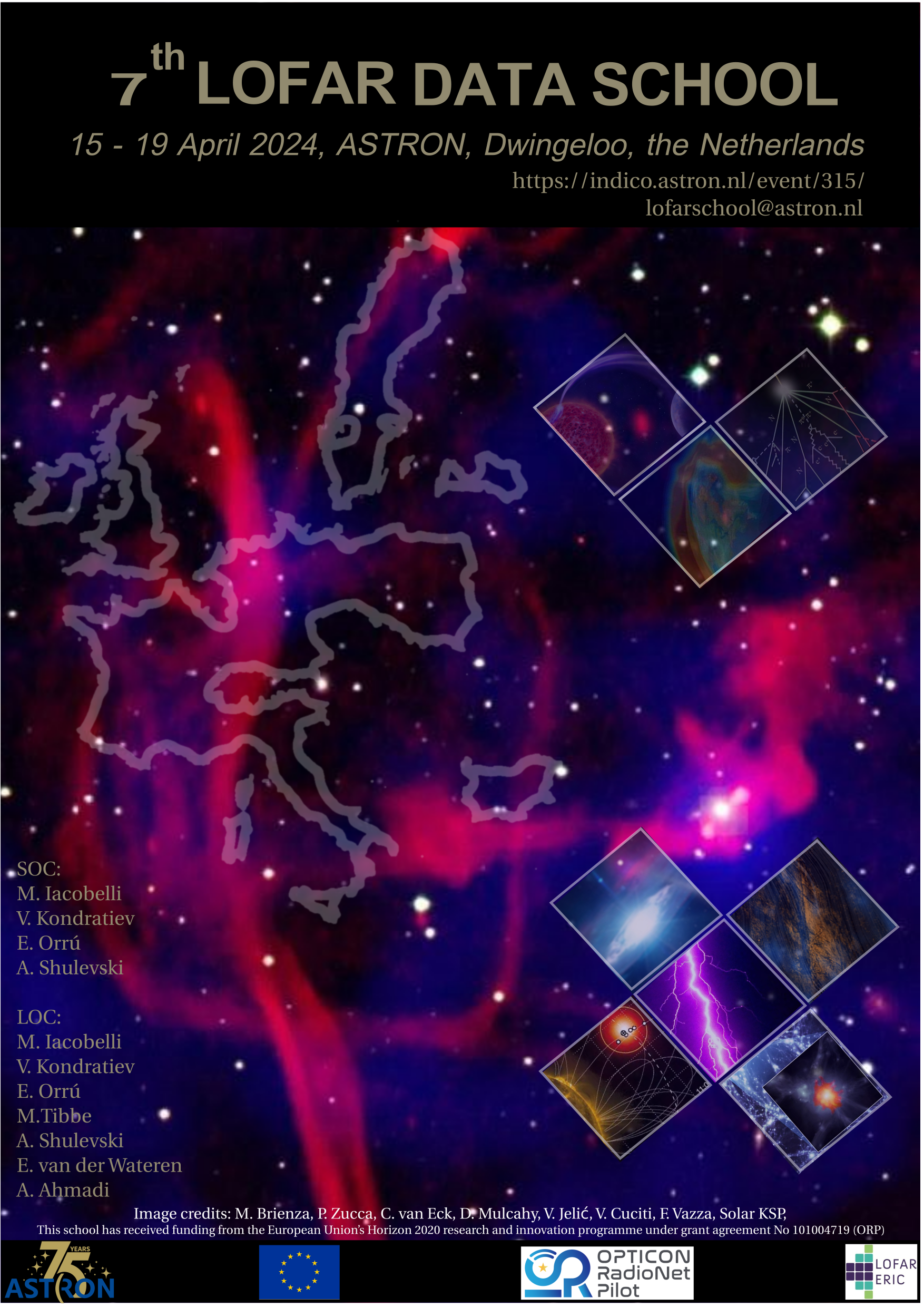7th LOFAR Data School, 15-19 April 2024
ASTRON
Notification from the LOCIn the LOFAR Slides repository you can find the presentation slides, session recordings as well as additional items. Click on the button in the "School" column for the 2024 row and a table of contents will appear showing the materials.
Aim of school
The aim of the School is to introduce the LOFAR system to new members of the LOFAR community who will analyze both interferometric and high time resolution beamformed LOFAR data. Students, postdocs, and staff are all encouraged to attend. The School will cover the many (advanced) aspects of the LOFAR system, including the software pipelines and their science products. Lectures and demos will be presented by members of the LOFAR project team as well as staff from the many institutions involved in the collaboration. Participants will have the choice of following demos on beamformed or interferometric data reduction. Online material will also be provided for offline hands-on data processing sessions. Interaction and networking between participants and lecturers will be promoted via Q&A sessions as well as team building activities. Remote participation will not be offered.
Minimum requirements for participants
Presentations will be given at a level appropriate for someone familiar with the LOFAR system and data products. Familiarity with standard data processing software such as CASA will be useful, but not required. Minimum requirements are that the participants have gone over the introductory topics provided online, as well as that they are familiar with scripting languages, in particular Python. Parallel sessions regarding advanced topics are planned. The school language will be English.
